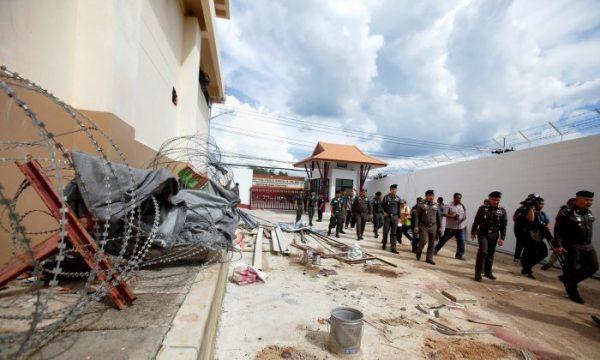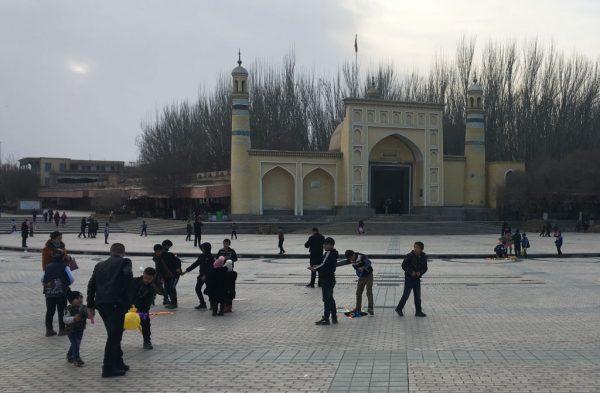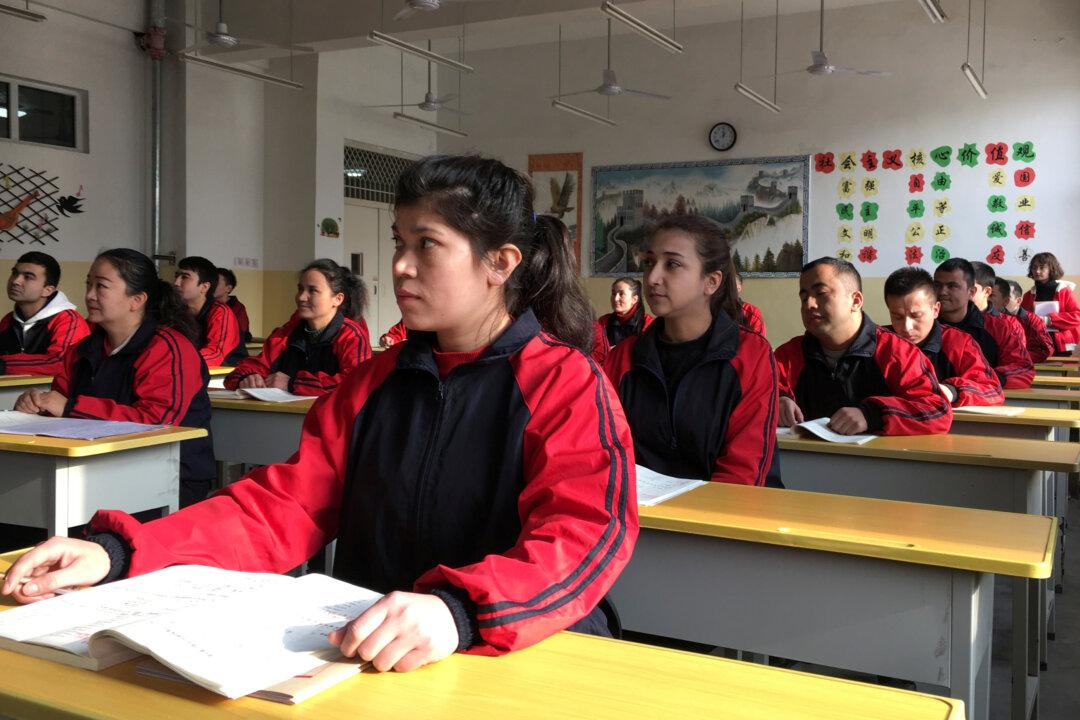The country’s foreign ministry said on Feb. 16 that Geneva-based diplomats from Pakistan, Venezuela, Cuba, Egypt, Cambodia, Russia, Senegal, and Belarus were visiting Xinjiang on a trip that ended Feb. 19.
Six diplomatic sources told Reuters that Beijing had invited for the next visit China-based diplomats from Saudi Arabia, Algeria, Morocco, Lebanon, Egypt, Singapore, Vietnam, Laos, Myanmar, Cambodia, Bangladesh, Russia, Turkmenistan, Georgia, Hungary and Greece.
Two sources said that trip was scheduled for next week.
Officials from Myanmar, Laos, Vietnam, Russia, Hungary, Morocco, Egypt, Algeria, Saudi Arabia, and Greece didn’t respond to requests for comment. Officials from Singapore, Bangladesh, and Turkmenistan declined to comment. Cambodian officials said they were unaware of the visit.
A source at the Lebanese foreign ministry said Lebanon wouldn’t participate, while Georgian diplomats received an invitation, but wouldn’t be able to attend, its foreign ministry press service said.
China’s Foreign Ministry, in a faxed response to Reuters, confirmed the Xinjiang government was inviting China-based diplomats to visit in coming days, but didn’t give details.
Xinjiang officials didn’t respond to requests for comment.
Separately, government officials on Feb. 22 will brief foreign envoys in Beijing about the situation in Xinjiang, four of the diplomats said. China’s Foreign Ministry didn’t immediately respond to a request for comment about that meeting.

‘Very Rattled’
Diplomatic sources say China has become increasingly worried about the overseas backlash against the camps, especially threats of U.S. sanctions, and has sought to counter that with a public push for a friendlier narrative.“They’re very rattled,” one senior diplomat, who has discussed Xinjiang with Chinese officials, told Reuters, speaking on condition of anonymity.
Muslim countries have generally held off criticizing China, at least in public.
“China does not want any other Muslim countries joining Turkey in criticizing the camps,” a second Beijing-based diplomat said.
All the diplomats who spoke to Reuters requested anonymity because they were not authorized to speak to the media.
The Chinese regime has also taken foreign reporters to the camps, including a small group in January that included Reuters. The tightly choreographed and chaperoned visit marked the first time non-Chinese media had been given access to the camps.
Uyghurs and other Muslims held in concentration camp-like facilities, known as “re-education” centers, are forbidden from using Islamic greetings, must learn Mandarin Chinese, and sing propaganda songs, according to a report by Human Rights Watch.
The news follows orders by Chen Quango, the Chinese Communist Party’s (CCP) Secretary in Xinjiang, to relocate all “orphans” in Xinjiang to state facilities by 2020.
Chinese Communist Party officials say the mass detentions among the Uyghur population, the majority of whom practice Islam, are part of measures to crack down on terrorism, religious extremism, and separatism in the country. The CCP has used the excuse of potential “extremist threats” to justify its strict surveillance and crackdown on Uyghurs and other Muslim minority groups in the region.

UN Meeting
China hopes to mute criticism of its Xinjiang policies at two upcoming events, diplomats say.One is the United Nations’ Human Rights Council, which starts on Monday in Geneva; the other is the Belt and Road summit in late April in Beijing, at which leaders from several Muslim nations are expected.
Switzerland, Germany, Britain and the United States were among the most critical of China’s policies in Xinjiang at its Universal Periodic Review by the U.N. Human Rights Council in January.
Yang Shu, head of the Institute for Central Asia Studies at Lanzhou University in northwestern China, told Reuters that it was important to take foreign visitors to Xinjiang, but that the effect would probably not be obvious.
“For countries that have good relations with China and have similar problems, it is easy for both to reach consensus on the Xinjiang issue,” said Yang, an expert on security and terrorism.
“For other countries, explanations will not have much effect. The United States and other countries have been criticizing China for a long time over the Xinjiang issue, and an explanation will not change their minds,” he said.
Several Western diplomats told Reuters in recent weeks they were frustrated at Muslim countries’ unwillingness to speak out about Xinjiang.
A group of about a dozen ambassadors from Western countries wrote last year to request a meeting with Xinjiang’s top official, Communist Party chief Chen Quanguo, to discuss their concerns. No meeting has been scheduled.
The letter was circulated widely, but no Muslim country signed it, diplomats say.
Turkey’s outburst, however, has given some hope that the wider Islamic world could soon start making critical comments about Xinjiang.





